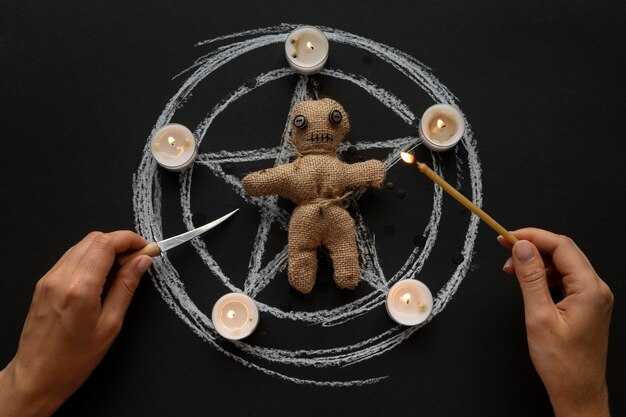Every so often I post a video that really riles up a particular crowd — in this instance, folks who follow New Age ideas. I’m not dismissing all of it, but I do push back hard when those beliefs are used to romantically manipulate people. This clip was recorded during lockdown — you can tell because the image is a bit soft; I filmed it on my laptop and the angle is this awkward wide view of my old office. Good times, right? (Not really.) The topic is New Age myths that keep you single. It’s frighteningly easy for those who suffered childhood trauma to be coaxed into thinking that painful, confusing experiences are somehow meant to teach them how to be loved. Love is what we all crave, of course, but some widely circulated personal-development or spiritual ideas are simply false, and they can be weaponized by people who want to take advantage of you. Take, for example, the notion that every experience you endure is unconsciously created by your own mind so you can “learn” from it. Many people hold that belief innocently — they’re trying to take responsibility for their inner world, not exploit anyone. But when someone’s perception was warped by childhood PTSD, ideas like this become a form of magical thinking. That kind of thinking opens the door to manipulators who profit from it: they’ll drain your bank account, promise a future relationship, let you down, and then tell you that you “created” the situation and they were merely helping you learn. Have you ever been on the receiving end of that game? Perhaps you went along with the magical explanation because it felt less humiliating to believe you’d somehow caused a terrible situation than to admit you were being emotionally exploited — that the right move was to leave because the other person didn’t care about you. Together you can perpetuate the fantasy that keeps you from seeing the obvious — that you are not loved, you are alone. You wanted love, but instead you ended up alone again. I’m Anna Rle, also known as the Crappy Child Fairy, and I teach people how to heal the adult consequences of childhood abuse and neglect. I help people build a BS detector so they can adopt new ideas and listen to others without being pulled into the kind of magical thinking that erodes boundaries and destroys the soft, hopeful part of you that’s meant to attract genuine love. I want to help you guard that tender hope, because that is what someone will fall for one day — your true, worthy, respectful self who thrives in reality, dislikes dishonesty, and listens to that inner nudge when something feels off. That version of you is nourished by kindness and goodness, not cruelty or a spiritualized excuse for being used. It’s never okay to be exploited. So let’s unpack several toxic beliefs so you can recognize them. You hear them a lot; they sound profound or like ancient insight, but they’re seductive because they’re counterintuitive and too-good-to-be-true. First: when someone dismisses your thinking by saying you’re “all up in your head,” that you need to “get out of your head and into your body,” just “breathe,” “live in the moment,” or that you’re being “too left-brained,” notice the pattern. These comments are a critique of you. Someone who wants you to go along with something difficult for them will paint your careful thinking as a flaw. The implication is that you’re not as evolved, free, or enlightened as they are. Most people recognize that fleeting moment when criticism tempts you to ignore your better judgment to win their approval. That pressure — to stop thinking, to abandon logic, to ignore prudent caution around money or sexual boundaries — is how people talk you out of your natural sense of self-determination and protection. Then you may even feel ashamed for having had those reservations in the first place. What’s happening is what I call “crap fit” — a phrase I made up to describe how trauma survivors became experts at fitting themselves into unacceptable people and circumstances just to survive. We learned to adapt to crap. Now that reflex shows up as suppressing the thoughts that say, “I don’t want to sleep with this person,” or “I shouldn’t give them my credit card.” Overriding those instincts usually stems from a deep belief that you can’t trust your own judgment and that other people somehow know better than you do. That’s dangerous. Another pervasive myth: “You are right where you need to be.” I get the intended message — life’s a journey and suffering can teach us — and there is truth to learning through hardship. But the statement collapses under scrutiny when it’s applied to abused children or people who spent decades in isolation in front of a TV. If you were a small child crying and nobody helped, you were not where you needed to be. If you were ridiculed at school or trapped by triggers and unable to escape loneliness, that was not “meant to be.” Likewise, being in a relationship where your legitimate expectations are not respected is not where you’re supposed to be. Suffering and pain are part of life, and with grace we can endure loss and even grow, but don’t buy the idea that being demeaned or mistreated was sent for your benefit. You hear this myth often around toxic relationships. A wonderful student of mine once described an abusive relationship as “good for her” because it taught her something. I understand the tiny kernel of truth there: sometimes a terrible experience does jolt us into course-correcting and gaining clarity on what we want. But repeated cycles of suffering in relationships — being cheated on, gaslighted, abandoned — are not lessons; they’re damage. I’ve coached many people who left a relationship more shattered than when it began. That’s not spiritual growth — it’s more crap fit: inventing meaning to hide from shame and to avoid admitting you allowed mistreatment. If you repeatedly second-guess your boundaries, people who hurt others will keep finding their way to you. If your aim is a loving, committed relationship — a marriage — crap fit cannot live in your life. Relationships that leave you feeling exploited and demoralized are not “learning experiences”; they crush your openness and joy, the qualities that actually make you attractive. We’re trying to get you to a place where you can be unabashedly yourself. The first priority must be clarity about what makes a person or a relationship “good.” Vagueness is the invitation: when you’re unclear about your standards, predators and takers drift in like flies because there’s no screen door. You need to define your sexual standards, your deal-breakers, the behaviors that trigger a hard red line — “do not cross” — and refuse to let those things into your life. A blind spot I used to have was around addiction. Initially I didn’t see it, and twice I wound up with partners who either developed serious addictions or already had them, which was devastating. If you’ve taken my courses you’ve heard how those relationships dragged my life down and how I eventually reclaimed it. One crucial step I took, not long before meeting the man I married, was to decide I would no longer date someone with a drug or alcohol problem. No judgment to those struggling with addiction — this is a recovery space and you’re welcome here — but for me, given my history with addicts in my family and in my previous relationships, that had to be a red line. I even wrote it down, though I was nervous to do so because another New Age belief had tricked me into avoiding clarity: “Be careful what you wish for.” That myth suggests you can tell the universe what you want and it will grant it, but it will do so in a mean-spirited, literal way as a kind of lesson — you wished for loyalty and got a stalker, you asked for adventure and got someone who dragged you into danger. I understand where this fear comes from: sometimes people haven’t yet formed a clear picture of what they want. But the universe — or God, if that’s how you think about it — isn’t a prankster waiting to punish your wishes. I’m a person of faith, but if you don’t believe in God, translate this idea into terms that make sense to you. Fundamentally, we are made for good. After I hit rock bottom with my second addict partner (who, tragically, later died), I knew I wasn’t where I was meant to be. Any future relationship I chose had to support the good inside me and help me grow. A real partner would make my life better and, importantly, I would know it by how his presence helped both of us become better people. With my husband, I was never mistreated, disrespected, or ashamed — and that’s the kind of love that aligns with what I believe we’re created for. The universe is not a slot machine or an online order fulfillment service; you don’t place an order and hope some cosmic trickster doesn’t shortchange you. My point is this: if trauma left you vulnerable and unsure of yourself, it’s time to get clearer and stronger so you can create a life that leads to real happiness and to fulfilling the gifts you have to offer this world. If this video resonated and you suspect past trauma might be making you vulnerable in dating today, I invite you to download a free list of signs that show exactly how this blockage can keep you from genuine love. I’ve made that list available for you right here, and I’ll see you very soon. [Music]
How to Spot Spiritual Manipulation — Quick Red Flags
- Someone consistently dismisses your concerns as “ego,” “resistance,” or “not spiritual enough.”
- They pressure you to stop thinking, decide quickly, or “trust the universe” when decisions involve money, sex, or time commitments.
- They reframe your discomfort as a spiritual failing (e.g., “You’re too dense to receive this.”).
- They use vague spiritual language to avoid clear promises or accountability.
- They ask for secrecy, gifts, money, or sexual access while insisting they’re guiding or helping you heal.
- They insist that you created your own abuse or suffering, which shifts blame away from their behavior.
Practical Steps to Protect Yourself
- Write down your standards. Make a short list of non-negotiables (financial boundaries, sexual boundaries, honesty, sobriety rules if relevant). Keep it visible and review it before dating or making big commitments.
- Slow down. If someone pushes for speed (“move in,” “get married,” “invest now”), treat that as a red flag. Time is a tool for truth.
- Use simple scripts. Say things like: “I’m uncomfortable with that,” “I need time to think,” or “No, thank you.” Rehearse them until they feel natural.
- Verify claims. If someone says they’re a healer, teacher, or have credentials, ask for specifics and take time to check them. Spiritual claims don’t exempt someone from verification.
- Protect your money and documents. Never co-sign, give access, or transfer funds under pressure—even if framed spiritually.
- Keep your support network informed. Tell friends or a therapist about new people in your life and ask for their impressions.
- Plan your exit. If living together or financially entangled, make a simple safety/exit plan and keep a small fund and important documents accessible.
Short Phrases to Use When You’re Being Gaslit

- “That doesn’t sit right with me. I need space to think.”
- “I don’t accept being told my feelings are wrong.”
- “If you keep insisting, I will leave the conversation / leave this relationship.”
- “I’m choosing to trust my judgement on this.”
Recovery and Rebuilding Trust in Yourself
Relearning how to trust yourself is a process: start with small experiments. Practice saying no to low-stakes requests, keep a daily journal of decisions you made and how they felt, and celebrate the times you honored a boundary. Therapy that is trauma-informed (EMDR, somatic approaches, or trauma-focused CBT) can help you process early wounds so they don’t continue to steer your adult choices. Group therapy or support groups can also normalize your experience and give you feedback from people who aren’t invested in keeping you stuck.
When to Get Immediate Help
If you’re ever worried for your safety—physical, sexual, or extreme financial coercion—contact local emergency services or a domestic violence hotline in your area. If you’re unsure where to start, search for national or local domestic violence resources, crisis lines, or sexual assault services. If you live in the U.S., the National Domestic Violence Hotline is one option; elsewhere, local health services or social services can point you toward survivors’ resources.
Further Resources

Books and podcasts about recovery from manipulative relationships can give language to your experience and practical tools for repair. Look for trauma-informed authors and clinicians, survivor memoirs, and practical guides on boundaries. If you work with a coach or spiritual teacher, ask about their ethics, refund policy, and whether they will accept third-party accountability (a mentor, therapist, or supervisor).
Above all, remember this: spirituality and personal growth should increase your ability to be safe, kind, and honest with yourself — not make it easier for someone else to take advantage of you. You deserve clarity, respect, and love that matches who you are at your best.













